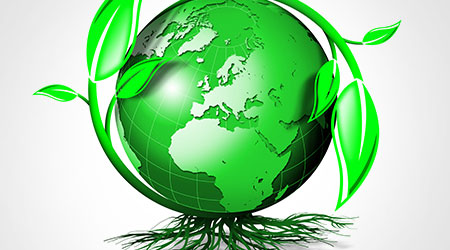In an era where sustainability is a growing concern, many consumers are making conscious efforts to choose eco-friendly products. However, not all products marketed as “green” or “eco-friendly” live up to their claims. This phenomenon, known as greenwashing, can mislead consumers into thinking they are making environmentally responsible choices when they are not. Here are five products you thought were eco-friendly but aren’t.
1. Biodegradable Plastics
Biodegradable plastics are often marketed as a sustainable alternative to traditional plastics. However, the reality is more complex. These plastics require specific conditions to break down, such as high temperatures found in industrial composting facilities1. In most natural environments, they do not decompose any faster than regular plastics. Additionally, the term “biodegradable” can be misleading, as it does not specify the time frame or conditions required for decomposition.
2. Organic Cotton Bags
Organic cotton bags are often seen as a greener alternative to plastic bags. While they do have some environmental benefits, their production is not without issues. Growing organic cotton requires significant amounts of water and land, and the process can still involve harmful pesticides and fertilizers2. Moreover, the energy and resources needed to produce these bags mean they must be used hundreds of times to offset their environmental impact compared to single-use plastic bags.
3. Recyclable Coffee Cups
Many coffee shops offer recyclable coffee cups as an eco-friendly option. However, these cups often have a plastic lining that makes them difficult to recycle3. Most recycling facilities are not equipped to separate the plastic from the paper, leading to these cups ending up in landfills. A better alternative is to use reusable coffee cups made from stainless steel or glass.
4. Bamboo Products
Bamboo is frequently touted as a sustainable material due to its fast growth rate and minimal need for pesticides. However, the environmental impact of bamboo products can vary significantly depending on how they are processed and transported4. Some bamboo products are treated with harmful chemicals, and the carbon footprint of shipping bamboo from Asia to other parts of the world can negate its environmental benefits.
5. Electric Cars
Electric cars are often promoted as a green alternative to traditional gasoline-powered vehicles. While they do produce fewer emissions during operation, their overall environmental impact is more nuanced5. The production of electric car batteries involves mining for rare earth metals, which can be environmentally destructive. Additionally, the electricity used to charge these cars often comes from non-renewable sources. To maximize their eco-friendliness, it’s essential to consider the entire lifecycle of the vehicle and the source of the electricity used.
Conclusion
While the intention behind choosing eco-friendly products is commendable, it’s crucial to look beyond marketing claims and understand the full environmental impact of these products. By being informed and critical consumers, we can make more genuinely sustainable choices.
For more tips on living a healthier life, bookmark our blog and follow us on Twitter @wellnessaccel and www.Facebook.com/WellnessAccel.





